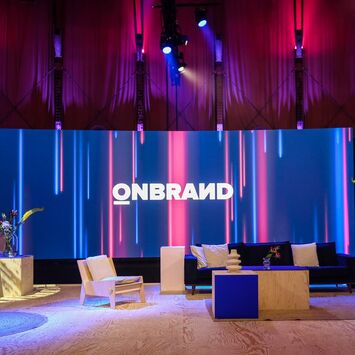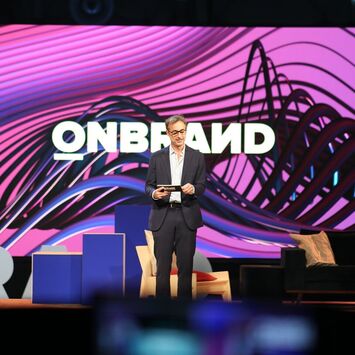The consumer-brand relationship is undergoing significant change. A recent study by Havas Media Group found that most people would not care if 74% of all brands disappeared completely, and only 28% are said to notably improve people’s quality of life and wellbeing.
Today’s digital savvy consumers more empowered and less responsive to traditional brand messaging, thus diminishing the power and influence of brands. The recent proliferation of ad-blocking technology, in particular, proves that the internet is no longer a place which affords brands unlimited access to consumers.
In the digital age, the traditional rules of branding (big ideas, long-term margins, and emotional appeal) seem to be obsolete in an economy where consumers increasingly prefer products or services that provide convenience and top class user experiences.
Is branding losing its significance in the digital age or are we entering a new era of branding where the rules have changed?
Timotheus Kayliang Lee, Digital Marketing Consultant, Freelance
The question should be a statement. Branding is more important than ever AND the companies that succeed today are the ones that provide unparalleled user experiences and value to consumers. When consumers recognize a brand, when they have some knowledge about it, there is less thought or processing of information to make a product decision. Brands can also reduce risks (functional, physical, financial, social, psychological and time) in product decisions. As many of ours and our consumers’ lifestyles become more time starved and rushed, a brand that is able to simplify decision making and reduce risk is invaluable.
In this digital age, consumers are increasingly becoming more savvy and more experienced with marketing. They know how it works and as a result have become more demanding. Plus, digital has resulted in the emergence of new communication options and media fragmentation, which have become some of the key challenges in today’s marketing environment. In addition, digital has empowered the consumer such that they can play a more active role in a brand’s fortune. Consumers are now able to publicly promote a brand or attack it. They can also collaborate with the brand’s development and shape the brand meaning. As such, digital is a medium to deepen brand meaning and increase brand equity.
Robin Bond, Founder of Bond Brands, Inc. and Robin Bond Media
I believe customers will always expect value and an unparalleled user experience, and rightly so. I would also offer that branding in the digital age is more important than ever, but its definition and the rules of engagement have changed. For decades there was - and for many brands, still is - a “build-it-and-they-will-come” mentality. Corporations big and small would invest millions in a navel-gazing approach that was about the visual expression of a promise which, shouted from the rooftops, would get under the skin of their target audience like a parasite until that brand became the top-of-mind choice.
Today, smart brands know that their target audiences are already out there, eagerly sharing their experiences, insights and objections regarding the status quo. It’s the smart brand’s job to join those conversations and address the collective tastes, preferences - and sometimes outrage - of a savvy audience. Consumers will listen and respond to a brand that is culturally relevant at that moment in time. A brand-for-all-times approach will not withstand the zombie apocalypse, but one that is responsive, customer-focussed, empathetic and engaging will. This is no longer a case of “he who screams loudest wins.” It’s about brands finding their true audiences and meeting them where they live - both virtually and physically - and making relevant, thoughtful, action-oriented conversation. Think of the “listening” brand as the guy everyone wants to talk to at the party. Then there’s “build-it-and-they-will-come” guy who talks loudly about one thing: himself. Which of these two guys would you rather have at your party?
Giulia Iannucci, Strategic Branding and Marketing Consultant, and Founder of KnowThyBrand
It really depends on what you consider as “branding”. If for branding you refer to a tactical execution of marketing with a fancier name… well no, brand doesn’t really matter. Consumers are smart, they know what they want and what to expect, so they won’t fall for a branding exercise that is nothing else than a marketing stunt (Woolworths’ epic fail comes to mind when they tried to link their brand tag “Fresh Food people” to “Fresh in our memories” trivializing ANZAC war memorial).
However, if for branding we mean a strategic business approach that represents what the company stands for, what its values and mission are, what the added value that brings to its clients is, and what the customer experience that it offers is, then the answer is 100% yes. Think of big names like Virgin. When you buy a Virgin plane ticket or sign up for Virgin Media, in your mind you have associations that make you choose Virgin over its competitors. Of course pricing, convenience are some of the factors, but also the idea of “disruption”, of challenging the status quo that comes with Richard Branson and its company play a significant part in the loyalty of its customers. In the digital age, when customers seek brand transparency and two-way conversations with companies, strategic branding is an absolute priority to help position and drive businesses.
Nick Dachris, Strategy Consultant at Delta Salience Branding
The short answer would be 'yes, it does', but what did you expect from a branding professional? Now, why and how have we been seeing such growth of FMDBs, in the time since the .com crush? FMDB (Fast Moving Digital Brand) mania was possibly sparked by Napster's fall. With a few notable exceptions, e.g. Amazon, Google and Facebook, the general trend seems to show an increasing speed of business cycle - as opposed to cycles - which resembles snatch tactics (hit and run pillaging). Brands exploiting content, services and products created by other brands or independent individuals, have a huge organisational value to economic growth, but unless they have invested to physical resources themselves, they cannot be relied on for too long. What ultimately makes a brand worth recalling, buying, identifying with, etc. is the quality of life it offers with the business (Stakeholder Experience) it represents, long term. UX is all FMDBs have to offer. Upgrading servers and algorithms fast comes first.
Martez Moody, Freelance Account Executive
Yes of course brand matters in the 21st century. Branding is the only road map that one has in order to keep their USP from being a thing of the past. As more brands come and go, a weak economy keeps generics afloat of the competition. From conception to creativity, brands work tirelessly to push their way through crowded market spaces in order to stand out against the competition. Exceptional and content rich branding is the only way that brands can get the oxygen that they need for marketplace survival. Right now, China is designing plans to challenge the new VR headsets for less than a $200 price point. It is here that branding becomes especially critical for China's competitors. Should brands sacrifice big ideas, long-term profit margins, quality and emotional appeal, for smaller profit margins and long-term sustainability? Competitive generics are both a crucial and inevitable part of the product life cycle.
Lawri Williamson, Communications & Brand Manager
Your “user” experience IS your brand. It always has been. Whether you have 10 brands to choose from or 10,000, you'll choose the one that delivers the best experience. Price-conscious people will stick with a sub-par experience for as long as they need to, but treat them badly enough, and they will leave. When price isn't an issue, the experience is everything.
Mari Marson, Marketing Communications Program Manager, M2 Integrated Communications
Yes, absolutely, brand matters in the digital age. I think the question to ponder is whether or not brand "loyalty" matters in today's digital landscape.








